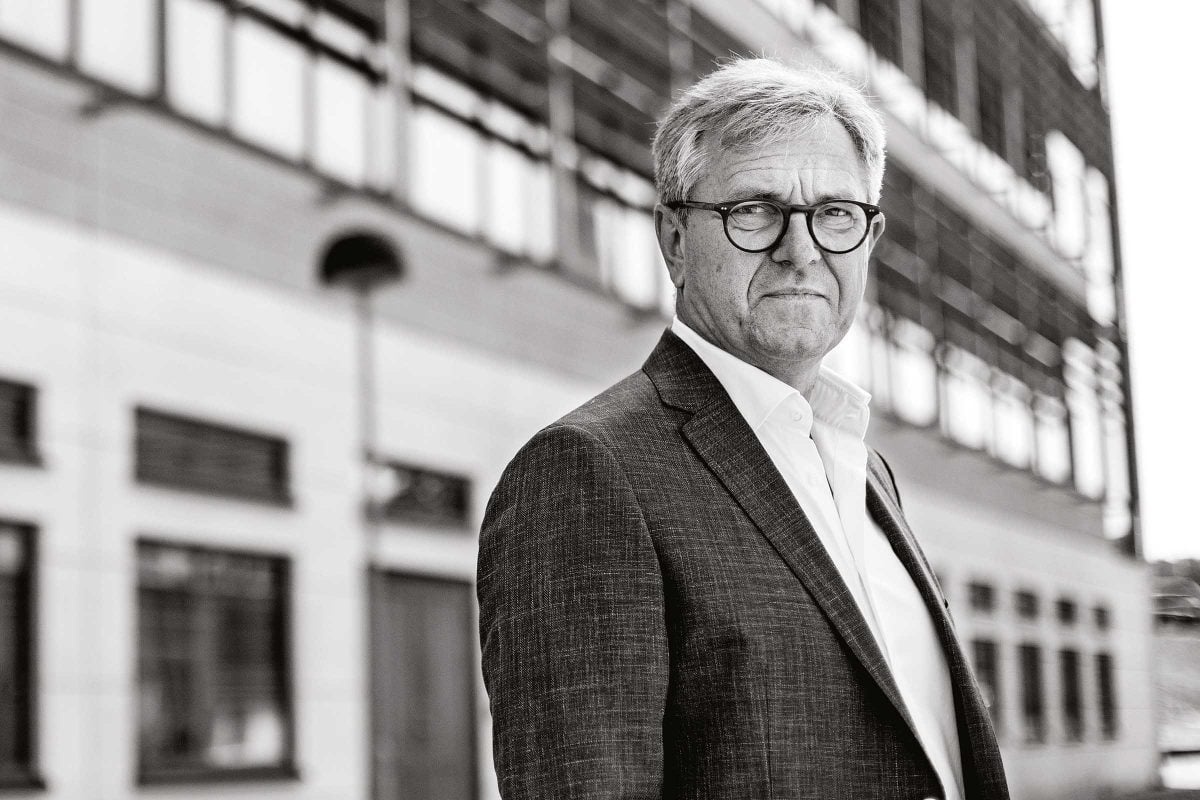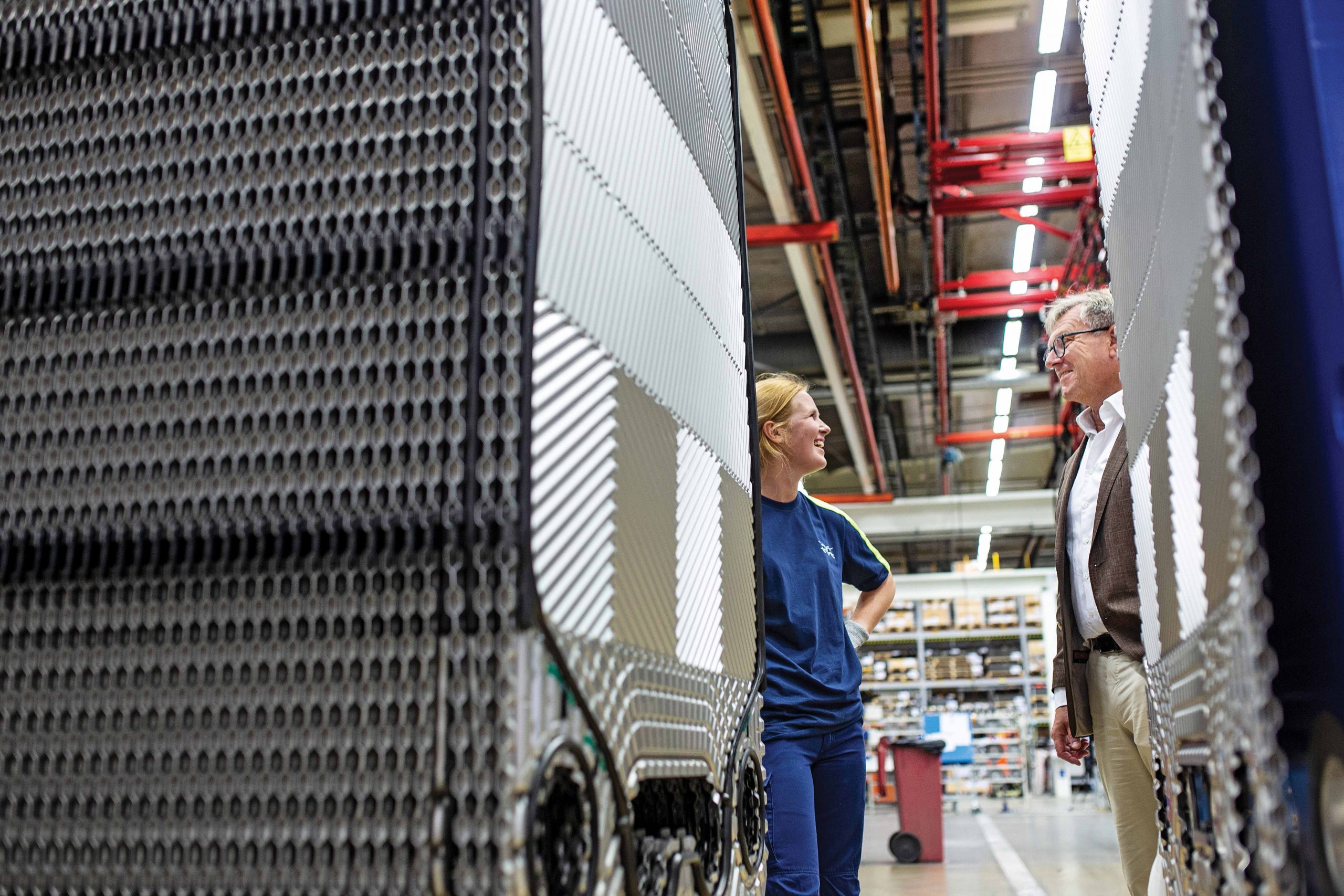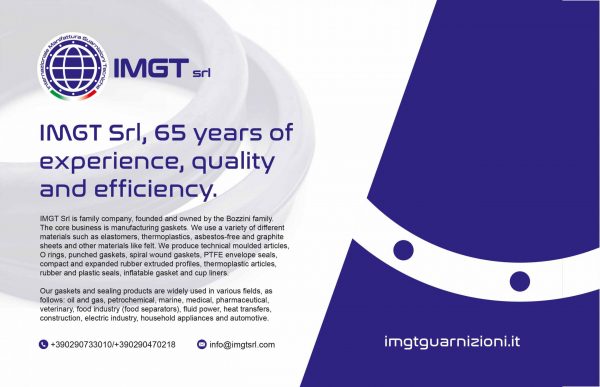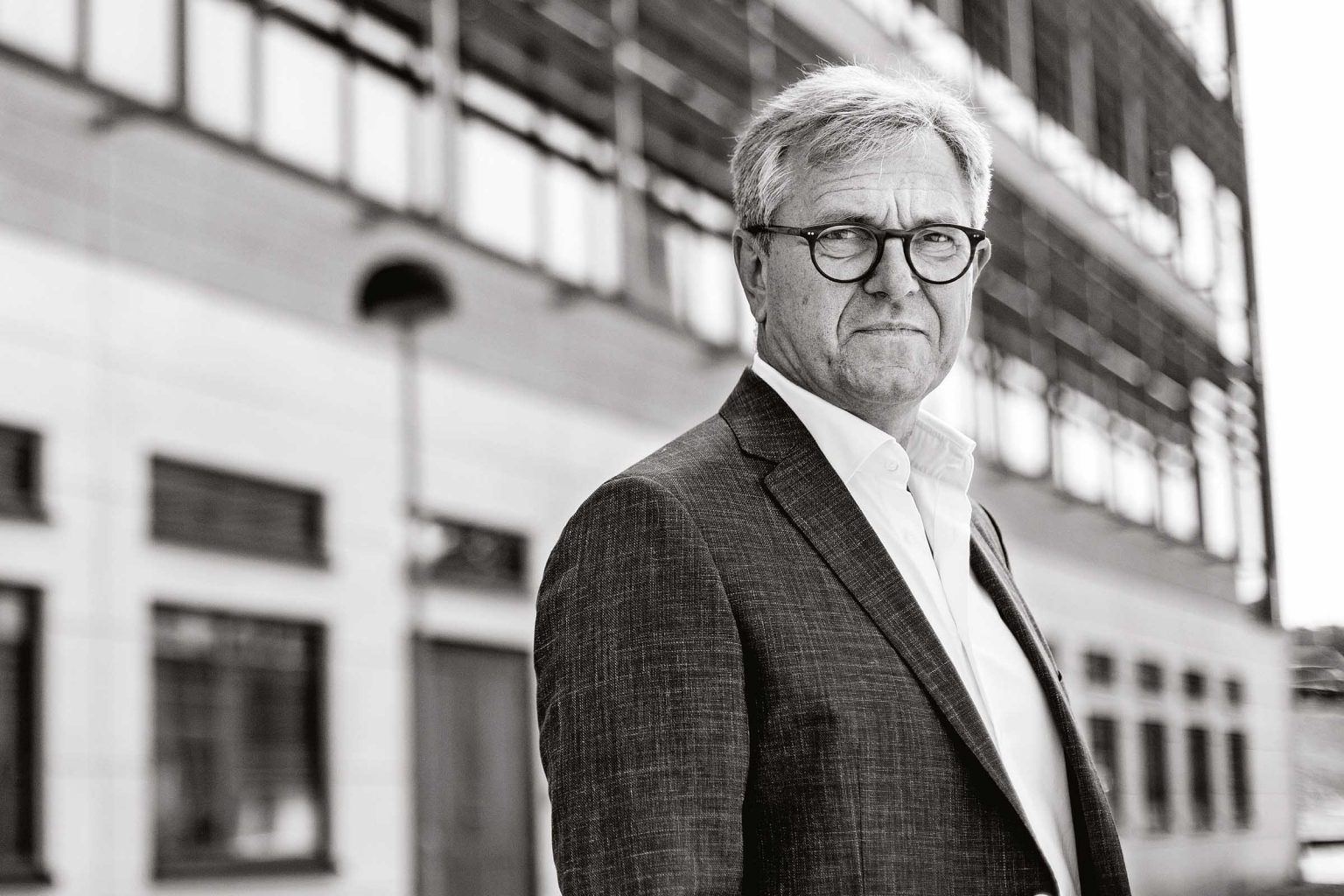Tom Erixon has been President and CEO of Alfa Laval since 2016, and with his initial five-year plan largely complete, he is ready to start on the company’s next phase. “When I joined, it was a well-run company, but it needed some housekeeping – and especially a stronger product focus,” he begins.

“The plan was to strengthen our market position back to organic growth, and invest in our core technologies. And last year, we felt we pretty much came to the end of that journey. “We’ve increased our R&D spending significantly. We trained our global sales force as product specialists, and we had a response in the market in terms of strengthening market share across the board. We also resolved a lot of the product profitability issues we had.
“But 2020 was the year when that plan A was turning into something completely different, and that is now the next journey ahead of us.” Of course, 2020 was a year like no other, and although Alfa Laval was largely unaffected in terms of productivity and profitability, it has shaped the company’s thoughts on how to approach the future.
“We will look back on it as a very challenging time,” Tom admits. “It’s been a lot of short-term crisis management, health and safety issues, and measures taken to manage the integrity of supply chains. But we’ve continued to manufacture, develop engineering solutions and launch new products.
“In a broader positive sense, transformation has been accelerated by the pandemic. And from a business point of view, governments have increased their engagement in supporting the economy.”

Alfa Laval will therefore approach the rest of the decade shaped by a backdrop of global calls for more sustainable energy, fuelled by the dual catalysts of COVID-19 and governmental policy.
“The transformation from the old fossil economy to a decarbonised environment is accelerating,” Tom affirms. “The investment pace in a new industrial infrastructure has accelerated way beyond where we were 18 to 24 months ago. And Alfa Laval is such an exciting place to be because we have a foot in the old and a foot in the new.”
Tom believes the next 20 years will be about optimising the old and innovating the new as the world transitions between traditional and new energy sources, makes places like refineries more efficient and develops new energy solutions.
“We need to deal with both our heritage and with our future,” he says. “The journey is ongoing and we are helping to support the old, while certainly pioneering and developing our technology to the new type of energy systems that will be needed.”
One of the areas the company is working on at the moment is energy storage solutions, Tom shares. “With volatile energy production sources such as wind and solar, there is a need for energy storage, and we don’t feel that battery technology is very efficient or scalable,” he points out.
“We think thermal energy storage has a big future, and we’re investing heavily in the technology. We think the first thermal solutions will be tested, pilot built and verified by 2024.”
Hydrogen is another area of development, and one that uses a similar technology infrastructure to traditional gases. “We know that area well. It will be a growth area for us in the years to come,” Tom confirms.
In a broader positive sense, transformation has been accelerated by the pandemic. And from a business point of view, governments have increased their engagement in supporting the economy.
One of the biggest challenges with creating new technologies is that investment decisions need to be taken before experts can be sure of where the market is heading. “Anybody who thinks they know exactly where this thing is going over the next five to 10 years is probably going to be proven wrong,” Tom predicts.
“We have to be clear on that too. There are competing technologies, and different views of what materials will be used.” The way Alfa Laval is dealing with that is by entering development partnerships in a bid to share the risk. It is also speeding up corporate decisionmaking to better cope with the dynamic market.
“The R&D that has been very much in-house for the past 100 years will move to much more of an open partnership collaboration mode,” Tom suggests.
We think thermal energy storage has a big future, and we’re investing heavily in the technology.
“We’ve also spent some years in getting speedy enough and decentralised enough, so that we have decision-making structures that are as close as possible to the customer. When you’re a company that is a multi-product and multi-technology brand, too much centralisation and matrix structures create more bureaucracy and slow-moving animals.”
And so a new focus has been created, which is set to build on the organisation’s strong heritage. “We’ve been around for more than 130 years. Our products change, our technologies change and our business changes, but I think we have a strong company culture and have built a global team,” Tom says proudly.
“I don’t just mean the management team; I mean the larger team of 17,000 people who are proud and committed and engaged in what we are doing.” Alfa Laval’s global team extends to its partners as well. COVID-19 hit suppliers badly in places like Northern Italy and Mumbai, but strong relationships and good operations management ensured that the company could overcome supply problems without disrupting its customer schedules for deliveries.
Trust has not only increased for Tom with his partnerships in the past five years, but also within Alfa Laval. “When you come to a company from the outside, you need to get close to the situation. You need to be hands-on,” he says.
“Five years in, I’m extremely comfortable with the team, in terms of capabilities and judgement. I don’t need to be as close to the gun smoke as I know I can trust them to do what needs to be done.”
Proudly supported by:




